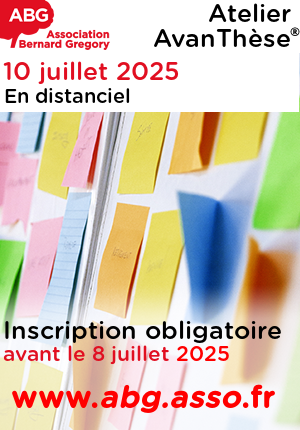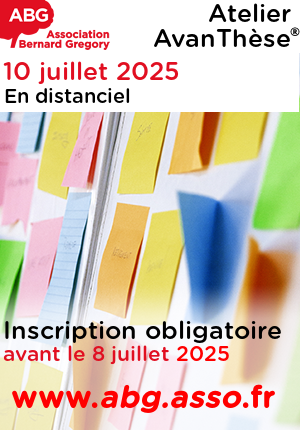Deep Learning-Based Gait Mode Classification to Enhance Adaptive Control of Robotic Assistance
| ABG-131682 | Sujet de Thèse | |
| 05/05/2025 | Contrat doctoral |
- Robotique
Description du sujet
This PhD project, conducted at the Laboratoire Images, Signaux et Systèmes Intelligents (LISSI, EA 3956), addresses the challenge of providing intelligent robotic assistance to frail individuals with reduced locomotor capacity, such as older adults or people affected by gait impairments like foot-drop. These individuals often experience significant difficulties in walking safely and efficiently across diverse terrains—such as stairs, ramps, or uneven surfaces—which heightens the risk of falls and severely limits autonomy. The central goal of this project is to develop a wearable system combining deep learning-based gait mode classification with advanced control strategies to deliver context-aware, real-time robotic assistance via an active orthosis. The proposed system aims to enhance safety, reduce physical strain, and improve mobility performance in daily life scenarios.
Sensor data will be acquired through inertial measurement units (IMUs) and force-sensitive resistors (FSRs) placed unobtrusively on or in the user’s footwear. Deep learning models will be trained to recognize gait modes in real time, providing the necessary contextual information to guide assistive torque generation. However, the core focus of the research lies in the development of an adaptive control scheme capable of translating this information into smooth, stable, and responsive actuation, even under uncertain and variable conditions. The controller must account for sensor noise, time delays, biomechanical variability among users, and the unpredictable nature of real-world environments—including the presence of obstacles and terrain-induced perturbations.
Building upon the SIRIUS team’s expertise in human-in-the-loop control, adaptive and sliding-mode controllers, and impedance shaping for wearable robots, the project will explore control architectures that integrate robustness and flexibility. A particular emphasis will be placed on managing system uncertainties and external disturbances, ensuring that the robotic orthosis can modulate its assistance appropriately without destabilizing the user or disrupting natural movement. The expected outcome is a real-time, embedded solution capable of delivering assistive torques that are both physiologically coherent and dynamically adapted to the walking context—contributing to the development of next-generation, intelligent rehabilitation technologies for frail populations.
Nature du financement
Précisions sur le financement
Présentation établissement et labo d'accueil
The LISSI laboratory focuses on advanced research in computer science and its applications in various fields, particularly in the development of intelligent systems and robotics. It brings together researchers from multidisciplinary backgrounds to work on projects that integrate artificial intelligence, robotics, data science, and human-computer interaction, with the aim of solving real-world problems.
LISSI’s work addresses significant societal challenges, including healthcare, mobility, and the improvement of quality of life through technological innovation. The laboratory is involved in developing systems that support personal assistance, mobility enhancement, and rehabilitation. A key focus is on creating intelligent systems that can interact with humans in a seamless and adaptive manner, ensuring that these systems not only assist with physical tasks but also integrate human behaviors and intentions in the decision-making process.
LISSI's interdisciplinary approach includes contributions from fields like machine learning, control systems, ergonomics, and social sciences, fostering a holistic view of how technology can enhance human capabilities. The lab’s research also tackles ethical and social considerations, ensuring that technological advancements are aligned with societal needs and values. Through its work, LISSI aims to create innovative, user-centered solutions that can improve daily life and contribute to the advancement of science and technology.
Site web :
Profil du candidat
The ideal candidate should have a strong background in control systems, robotics, signal processing, and applied machine learning. Proficiency in programming (e.g., Python, MATLAB, or C++), experience with embedded systems or real-time platforms, and familiarity with sensor integration and biomechanical modeling are highly desirable. Prior exposure to deep learning frameworks (such as PyTorch or TensorFlow) and interest in human movement science will be considered valuable assets.
Vous avez déjà un compte ?
Nouvel utilisateur ?
Vous souhaitez recevoir nos infolettres ?
Découvrez nos adhérents
 ADEME
ADEME  Laboratoire National de Métrologie et d'Essais - LNE
Laboratoire National de Métrologie et d'Essais - LNE  Nokia Bell Labs France
Nokia Bell Labs France  Groupe AFNOR - Association française de normalisation
Groupe AFNOR - Association française de normalisation  CESI
CESI  Aérocentre, Pôle d'excellence régional
Aérocentre, Pôle d'excellence régional  Institut Sup'biotech de Paris
Institut Sup'biotech de Paris  CASDEN
CASDEN  MabDesign
MabDesign  ONERA - The French Aerospace Lab
ONERA - The French Aerospace Lab  PhDOOC
PhDOOC  TotalEnergies
TotalEnergies  Tecknowmetrix
Tecknowmetrix  MabDesign
MabDesign  SUEZ
SUEZ  ANRT
ANRT  ASNR - Autorité de sûreté nucléaire et de radioprotection - Siège
ASNR - Autorité de sûreté nucléaire et de radioprotection - Siège  Généthon
Généthon  Ifremer
Ifremer







